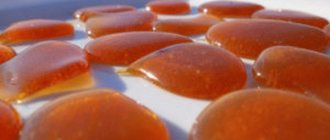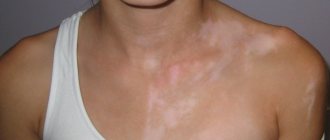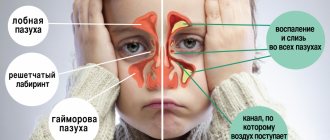What is a cough
Coughing is a protective reaction of the body and is one of the innate unconditioned reflexes. It is triggered by any irritants in the respiratory tract, pushing them out through increased exhalations through the mouth - cough shocks. The irritant can be sputum, blood, pus, dust, objects and any substances. They provoke receptors in the respiratory tract (in the nose and paranasal sinuses, larynx, trachea, pleura, bronchi).
The cough mechanism is a short deep breath, simultaneous contraction of the muscles of the larynx and tension of the abdominal wall, then forced exhalation through the glottis.
Basically, cough is a symptom of the disease and requires mandatory treatment. Most often accompanied by acute respiratory infections and upper respiratory tract diseases. Less commonly, it can signal diseases of the heart, ENT organs and nervous system.
Foreign object in the respiratory tract
The development of coughing attacks can be triggered by the penetration of a foreign object into the respiratory tract. In this case, the child becomes very anxious. Shortness of breath occurs, the cough is painful, dry, reflex.
In this case, it is very important not to panic. It is necessary to calm the baby so that he can breathe more calmly. Next, it is imperative to call emergency help as quickly as possible, since the effectiveness of treatment depends on how promptly parents contact specialists.
How to recognize a coughing attack
If the cough is paroxysmal in nature, occurs at night and in the morning, and repeats during waking hours, you should consult a doctor. Such a cough clearly signals illness. Especially if it is accompanied by fever, fatigue, snot, red throat, and general weakness.
But we must remember that a cough is not always a companion to the disease; sometimes it is needed to clear the airways and eliminate breathing obstructions. It passes quickly and does not recur, unlike a cough that causes illness.
How to determine the cause of a child's cough
If the cough is not associated with diseases of the respiratory system, other symptoms additionally appear. For example, stomach pain, heart pain, headache. In this case, you will need to consult a neurologist, gastroenterologist, or cardiologist. Only a doctor can determine why a child has a cough. You should not self-medicate and use medications or use dubious methods of alternative medicine.
To determine the cause of the cough, you need to consult a doctor in time. A timely visit to a specialist will determine how correctly the diagnosis is made, as well as how correct and timely the therapy is. The doctor will be able to prescribe rehabilitation courses in a timely manner - physiotherapy, massage, halotherapy. It is also necessary to undergo preventive procedures in order to reduce the risk of re-development of the pathological process.
Types and causes of children's cough
Cough can be different, and the purpose of treatment depends on its duration, frequency and time.
Causes of cough
The causes of cough are divided into several groups, and you need to understand the cause of the cough in order to prescribe the correct treatment.
- Colds of the ENT and respiratory organs are often accompanied by copious mucus secretion, which flows down the back wall of the larynx. A cough occurs as an attempt to clear the airways of copious secretions. Colds are most often caused by hypothermia.
- Infectious diseases of the upper respiratory tract and nasopharynx - the cause is the same: copious secretions secreted as a response to the work of viruses.
- Asthma - coughing attacks can occur in the cold, with intense movement, or in contact with allergens. Usually a cough occurs at night, it is accompanied by shortness of breath, whistling in the chest when inhaling and exhaling.
- Chronic bronchitis - cough occurs in the morning, after sputum is discharged it calms down.
- Pneumonia, tuberculosis - the type of cough depends on the stage of development of the disease.
- Diseases of the esophagus and stomach - stomach contents enter the respiratory tract. The cough is long and dry, breathing is wheezing. Accompanied by stomach pain, heartburn and vomiting.
- Allergy – cough occurs in response to excessive mucus secretion and as an attempt to get rid of allergens in the respiratory tract.
- Heart disease – cough at night, dry, hoarse. Accompanied by symptoms characteristic of diseases of the cardiovascular system.
- Nervous cough is difficult to diagnose, and the reasons for its occurrence are individual for each individual case.
- Foreign body in the respiratory system - cough occurs when small objects, such as crumbs, enter.
- Violation of the humidity regime in the room - dry or very humid air can cause a coughing attack, especially in young children.
- Air pollution - smoke, strong odors, for example from paint or low-quality plastic, can also trigger a cough.
Photo source: shutterstock.com
What kind of cough is there?
The classification of cough is based on its main manifestations.
Time of day, or daily dynamics
- Morning - occurs after waking up, when changing body position, is a symptom of inflammation in the upper respiratory tract.
- Daytime is a time typical for acute respiratory infections, pneumonia and bronchitis, which intensifies in the evening.
- Evening – a severe evening cough occurs with bronchitis and pneumonia.
- Night - as a rule, this is a paroxysmal cough, it accompanies bronchial asthma, laryngitis and whooping cough.
Duration of cough
- Acute – lasts up to 3 weeks.
- Chronic – lasts more than 3 weeks.
Frequency of cough
- Periodic cough - mild or paroxysmal, at the same time throughout the day.
- Persistent cough - continues for quite a long time, periodically weakening and intensifying.
Dry or nonproductive cough
Accompanies colds and infectious diseases of the upper respiratory tract.
Signs:
- lack of sputum;
- worsens in the evening and at night;
- paroxysmal;
- During the day, attacks occur 5 times or more;
- sometimes it is accompanied by fever;
- shortness of breath occurs;
- can be barking and hysterical;
- accompanied (but not always) by pain.
It is a mandatory symptom for:
- flu;
- laryngitis;
- whooping cough;
- tracheitis;
- pleurisy;
- pharyngitis;
- allergies;
- false croup;
- measles
Wet or productive cough
Appears after a dry cough.
Signs:
- sputum comes out;
- loud coughing sound, becomes quieter after the sputum is cleared;
- sputum has no color;
- if a yellow or green color appears, inclusions of pus and blood are signs of inflammation.
It is a mandatory symptom for:
- sinusitis;
- whooping cough;
- bronchitis;
- tracheitis;
- pneumonia;
- chronic diseases of the nasopharynx;
- bronchial asthma.
Cough treatment
Important! Only a doctor can prescribe cough treatment! Self-diagnosis and self-medication is very dangerous!
Treatment is aimed primarily at mitigating a dry, unproductive cough, and then at easing a wet cough and getting rid of it completely.
Dry cough
A nonproductive cough is very exhausting for the patient; the person may sleep poorly, be lethargic, and may lead to loss of voice. This cough does not go away on its own; it must be treated.
In addition to drug therapy, the following is recommended:
- control air humidity and temperature in the room where the patient is located;
- drink plenty of liquid, up to 1.5 liters per day - tea, fruit juice, herbal infusions, still mineral water;
- maintain bed rest;
- moisten the nasal passages with saline solution.
Moist cough
A productive cough is easier than a dry cough, but if it is not treated or the phlegm is suppressed, then serious complications of the disease can occur, since the mucus that accumulates in the bronchi is an excellent breeding ground for germs and bacteria. You should definitely pay attention to the deterioration of your health - an increase in temperature, the appearance of inclusions in the sputum, shortness of breath, hoarse breathing. At this stage of treatment, inhalations, physiotherapy, and massage may be prescribed. Warming ointments, mustard plasters, and foot baths are widely used.
It is important to observe bed rest, temperature and humidity levels in the room, give plenty of fluids, and ventilate the room.
First aid during an attack
How to relieve a dry cough in a child
Algorithm of actions during an attack:
- Calm down.
- Give the patient a warm drink.
- Moisten the nasal passages with saline solution.
- Humidify the air in the room.
- While the air in the room is being humidified, move with the patient to the bathroom, open the tap and sit next to open water (in a small bathroom the air will be humidified faster, therefore, relief will come much faster).
- Inhale using a nebulizer with saline or mineral water.
Important! The use of any medications must be previously agreed with a doctor!
How to relieve a wet cough in a child
Algorithm of actions during an attack:
- Calm down.
- Place the patient on his stomach and massage him, lightly tapping his back, this will help remove mucus.
- After the massage, sit the patient down.
- Clear your nose of mucus.
- Give plenty of warm drinks.
- Humidify the air in the room.
How to relieve an attack of allergic cough in a child
Algorithm of actions during an attack:
- Calm down.
- If possible, remove the allergen.
- Ventilate the room.
- Humidify the air.
- If possible, carry out wet cleaning (at least wipe the floor and wipe off dust).
- Give an antihistamine as agreed with the doctor.
Important! If swelling of the mucous membranes begins during an allergic cough, call an ambulance immediately! Quincke's edema may begin, which, in turn, can be fatal!
How to relieve a child's coughing attack at night
Algorithm of actions during an attack:
- Calm down.
- Seat the patient.
- Humidify the air in the room.
- Give warm drink.
- Moisten the nasal passages.
- For a wet cough, perform a tapping massage.
- For a dry cough, humidify the air as much as possible and, if possible, inhale.
Photo source: shutterstock.com
When to call an ambulance
If any of the above signs occur, you should immediately call an ambulance:
- suffocation;
- a sharp rise in temperature;
- swelling of the larynx;
- vomiting and nausea;
- Strong headache.
How to recognize a dry cough in a child?
Many parents believe that cough in children is dry when it is not accompanied by the discharge of sputum from the bronchi or lungs. Actually this is not true. It can be difficult to clear sputum for a variety of reasons. For example, due to the high viscosity of the secretion, due to insufficient development of the lungs, when the baby is simply unable to cough up mucus, due to the fact that the secretion is just beginning to accumulate and its quantity is not yet enough to be expelled. All these signs indicate not a dry cough, but a wet one, with the exception that it is not yet productive enough.
Before treating dry cough in children, you need to understand what signs can be used to identify this type. The presence of the disease in a child can be determined by the following symptoms:
- Coughing attacks are prolonged, and after coughing the baby’s condition does not improve, but only gets worse. This is due to the fact that in attempts to cough, the mucous membrane of the larynx is injured and further damaged, provoking a new wave of irritation in the throat and a new desire to cough. For this reason, attacks can occur one after another.
- A dry cough is accompanied by a fairly loud, booming sound. Doctors often identify this sound with a dog “barking” (barking cough).
- A dry cough initially forms in the larynx, while a wet cough comes from the depths of the bronchi and lungs, from somewhere inside. Accordingly, a dry cough is superficial and does not require a deep breath.
Regardless of the type of cough your child has, you should not make independent decisions about its treatment. Only a doctor should prescribe drug therapy based on data on the patient’s health status and individual characteristics. Therefore, to prevent complications and stop a dry, irritating cough in your child, contact your pediatrician.
Medications
For a non-productive cough
After the examination, the doctor may prescribe medications to soften the cough and thin the sputum:
- mucolytic drugs - thin the mucus and help it clear from the bronchi. As a rule, these are Bronholitin, Ambroxol, Lazolvan. Inhalation using a nebulizer based on Ambroxol and saline may be prescribed;
- antitussive drugs - should suppress coughing attacks by acting on the cough center. They can be given only until sputum begins to be discharged, otherwise the mucus will stagnate in the respiratory tract, and this can lead to complications. It is good to take before bed to relieve and eliminate nighttime coughing attacks - “Stoptussin”, “Gedelix”, “Tusuprex”, “Gerbion”, “Libexin”;
- antihistamines – relieve swelling in the nasopharynx and throat, help eliminate inflammation: “Tavegil”, “Suprastinex”, “Zodak”;
- anesthetics - to relieve painful symptoms caused by paroxysmal coughing. Pharmacies have a large selection of lozenges and lozenges with anesthetic and antiseptic properties: “Septolete”, “Faringosept”, “Strepsils”, “Hexaliz”, “Falimint”;
- antibiotics - strictly as prescribed by the doctor! They may be prescribed if the patient's condition worsens.
For productive cough
Important! When taking expectorants, you should never take antitussives!
Treatment is aimed at clearing mucus from the airways and relieving inflammation and its consequences:
- mucolytic drugs - they should dilute sputum well to facilitate its removal: Bromhexine, Lazolvan, Fluimucil, Bronchobos;
- expectorants - stimulate the release of secretions: “Mukaltin”, “Bronchicum”, “Bronchofit”, “Kodelac Broncho”, “Prospan”;
- antispasmodic - relieve spasm in the bronchi, increase the clearance in the respiratory tract and facilitate the release of mucus. Prescribed by a doctor depending on the course and nature of the disease.
Here are some simple and accessible tips for parents.
Moisturizes and softens a child's throat.
Since a dry cough occurs as a result of irritation of the nasopharynx, it is recommended to use a variety of methods to soften and moisturize the throat mucosa. Traditional warm drinks with added honey and heated milk can help with this. But it is better to avoid fruit juices and fruit drinks containing a large amount of acid - they can act as an additional irritant for the larynx.
Inhalations using natural essential oils.
You should resort to this method only if the baby does not have an allergy to oils or associated diseases. As active ingredients, you can use essential oils that have anti-inflammatory and antiseptic properties, for example, eucalyptus, peppermint, cedar, pine, rosemary and others.
Rubbing and compresses.
Rubbing with badger or goose fat has a fairly good effect in treating a dry cough in a child. They warm perfectly and have anti-inflammatory properties. You can also use a compress made from boiled and mashed potatoes - it is wrapped in several layers of dense natural fabric and applied to the chest.
Infusions and syrups from natural herbs, berries, roots.
One of the universal folk recipes for treating dry cough is radish juice with honey. This “medicine” can be prepared in different ways: grate black radish on a fine grater, squeeze out the juice and mix it with an equal amount of liquid honey; second method: use a knife or spoon to make a hole in the radish and pour honey into it, let it brew for several hours. In both cases, it is recommended to give the resulting tincture to children a teaspoon twice a day.
Treatment of a severe dry cough in a child with pharmaceutical preparations
The main drugs prescribed to young children for the treatment of dry cough are two groups of drugs:
- antitussives - they are prescribed to reduce the number of coughing attacks. They contain substances that act directly on the cough centers in the child’s brain, thereby suppressing attacks and reducing their intensity.
- combined - such drugs are aimed not only at reducing dry cough, but also have an additional anti-inflammatory and antibacterial effect.
If the cough is wet, but the sputum is difficult to separate, or it is too viscous, doctors prescribe special syrups based on marshmallow, licorice and other plants to young patients.
Additionally, to treat the throat mucosa and relieve the symptoms of dry cough, you can conduct home inhalation sessions using a variety of solutions. Such procedures can relieve swelling of the mucous membrane, moisturize it, heal and improve breathing.
When prescribing drug therapy, many doctors recommend using Derinat spray or drops as part of a complex of medications. This drug is used for the prevention and treatment of influenza and ARVI, but it has multidirectional effects. In particular, it fights viruses and strengthens and restores the mucous membrane of the nasopharynx, which can help reduce the number of attacks of dry cough and eliminate irritation in the throat.
Recommendations for use, treatment regimens and all related information can be found in the instructions for the drug.
Folk remedies
In addition to medications, there is a large arsenal of traditional medicine against cough.
Folk remedies for dry cough:
- Drinks - herbal infusions and teas, fruit drinks, vitamin drinks, freshly squeezed juices from fruits, vegetables and berries, compotes, dried fruits and frozen berries, berry jelly (especially with an exhausting and painful cough).
- For dry cough, all of the above remedies are aimed at thinning mucus and relieving coughing attacks:
- infusions and decoctions of herbs - you can buy in pharmacies in ready-to-brew and conveniently packaged form leaves of plantain, yarrow, coltsfoot, violet, caraway, thyme, pine buds, fennel fruits, licorice root, elecampane, marshmallow;
- warm and hot milk – goat’s milk with the addition of a small amount of butter, a spoonful of honey and a pinch of soda works best for coughs;
- rubbing and compresses using essential oils - a few drops are rubbed into the skin on the chest, after which a dry warming wrap is made. Eucalyptus, fir, and almond oil are suitable;
- black radish with honey is an excellent recipe for getting rid of a dry cough: take out the middle of the radish and put a little honey in this hole, give the resulting juice a teaspoon 3-4 times a day;
- iodine mesh - done on the chest, has a warming effect.
Folk remedies for wet cough:
- anise infusion: a pinch of anise seeds is mixed with a spoon of honey, a pinch of salt and a glass of water, boiled and taken 1 tablespoon every 2 hours;
- A decoction of plantain leaves is an excellent expectorant: for half a liter of boiling water, 2-3 tablespoons of dry leaf, leave for 2-3 hours, strain and take 1/3 cup 3 times a day;
- ginger: grind ginger root and pour boiling water over it, take after meals 4 times a day;
- inhalations - with menthol, coltsfoot and thyme.
Attention! When treating with folk remedies, it is important to make sure that the ingredients do not cause an allergic reaction!
Treatment of dry cough in adults
Treatment of a prolonged dry cough without fever in an adult should also begin with finding out its cause. Thus, for bronchial asthma, bronchodilators are prescribed. What to do if you have a frequent dry cough? For dry hacking cough of unknown etiology, symptomatic treatment is used and drugs are prescribed that inhibit the cough center. It is important to know that coughing with phlegm cannot be suppressed. In this case, to relieve a hacking cough, medications are prescribed that thin the mucus and improve its discharge.
How to relieve a dry cough that causes vomiting? In most cases, cough is a symptom of a specific disease. To find out which one, you need to undergo a serious examination. Only after this the doctor will be able to prescribe adequate therapy. Treatment of the underlying disease will help get rid of unpleasant symptoms, including coughing and vomiting.
Read about what antitussive drugs can be taken for dry cough during pregnancy on our website Dobrobut.com.
Related services: Consultation with a pediatric ENT specialist









